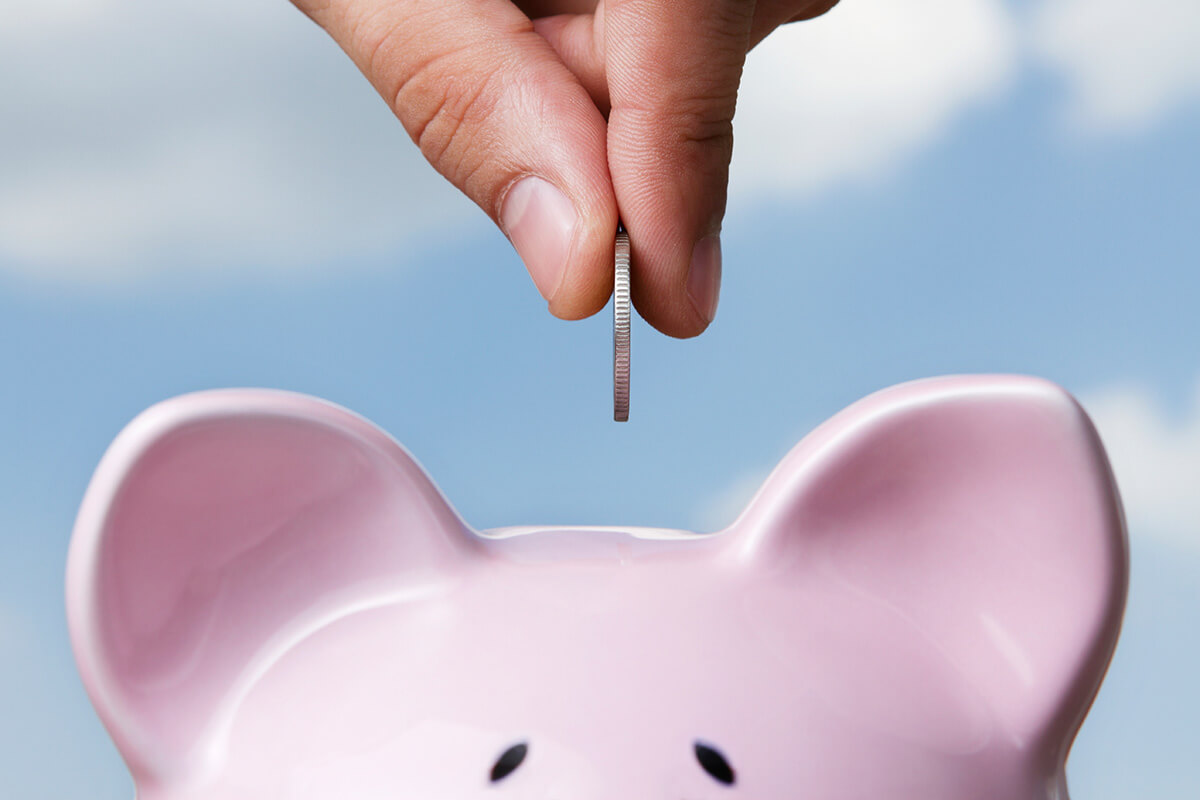If you’re like most 20-somethings (or even 30-somethings), it’s probably safe to assume that you’ve got some debt. Between credit card balances, student loans, and everyday living expenses, getting ahead financially might feel like an uphill battle. The good news is that kicking up your money game doesn’t have to be an intimidating endeavor. Stacy Francis, certified financial planner and CEO of Francis Financial, says it’s all about prioritizing your dollars so that they have the greatest impact on your big financial picture. Not sure where to place your money focus? Francis shares her tips for prioritizing your debt, building up your savings, and putting yourself on the path to financial freedom. Tackle credit cards first
Regardless of whether you’re knee-deep in credit card bills, or have only accumulated a smidge of consumer debt, one fact remains – you need to pay off those balances. (Like, now.)
“I tell people to pay off the thing that hurts the most,” says Francis. “Typically, that’s credit card debt because that’s going to be the highest interest rate right there. And the faster you can whittle that down and pay that off, the more financially secure you’re going to be.” Francis advises tackling the credit card that has the highest interest rate first. Another option is to pay off the smallest debt first, rolling over your payments until everything is paid off. This approach (coined by financial guru Dave Ramsey as the “Debt Snowball Plan”) is thought to build momentum faster. Research indeed shows that seeing your open accounts steadily closing one after the other increases confidence and helps people get out of debt faster. Build that emergency fund
After you vanquish your credit card debt, place your financial focus on growing your emergency fund. The truth is that we all need a rainy day fund – and, trust us, it’s going to rain sooner or later. Cars break down, pets get sick, and unexpected bills do come up. Having cash on hand to cover life’s curve balls is something you’ll thank yourself for later. “An emergency fund offers the best layer of protection that you could ever have from falling back into that credit card debt situation, which can really destroy your financial security,” says Francis, adding that the minimum goal should be six to nine months’ worth of expenses. According to Francis, millennials perhaps benefit the most from an emergency fund for a number of reasons. For starters, they’re typically unmarried, making them unable to fall back on their spouse’s income in the event of a financial catastrophe. Secondly, layoffs in general are most likely to affect the employees who were hired last. Gen Y-ers are also famous for bouncing around from job to job. “[Millennials] also probably don’t have money in a 401(k) that they can take a loan from, and they don’t have a broker’s account that they’ve been saving into for 10 years.” says Francis. “That emergency fund is absolutely key. The only exception is if they feel 100 percent comfortable moving back home with mom and dad in case of a financial emergency.” Pay down student loans (while also kicking in for retirement)
If you’re out of credit card debt and your emergency fund is solid, it’s time to start thinking about your next move. According to Francis, this isn’t always a clear-cut decision.
“It could be that you put your dollars toward paying off student loans, or it could be that those extra dollars go toward retirement,” she says.
Which one should take priority? Francis says there are a handful of factors to consider. If you have student loans with high interest rates, you’re going to want to zero in on upping your monthly payment and knocking out that debt as fast as you can. At the same time, if your budget allows, try and beef up your retirement fund. “Putting money in that plan may be a hard thing to do while balancing paying off student loans, but you should still try and do it if you’re getting a match,” says Francis. “That’s ultimately free money. Think about it: if you’re walking down the street and you see a couple hundred-dollar bills sitting there, you’re not going to walk by. You’re going to bend down and pick them up.” In other words, maxing out your retirement plan is a wise move. If your employer doesn’t offer a retirement package, or if you’re self-employed, look into opening a Roth IRA or other type of individual retirement plan.
Best money tips for millennials

iStock


















